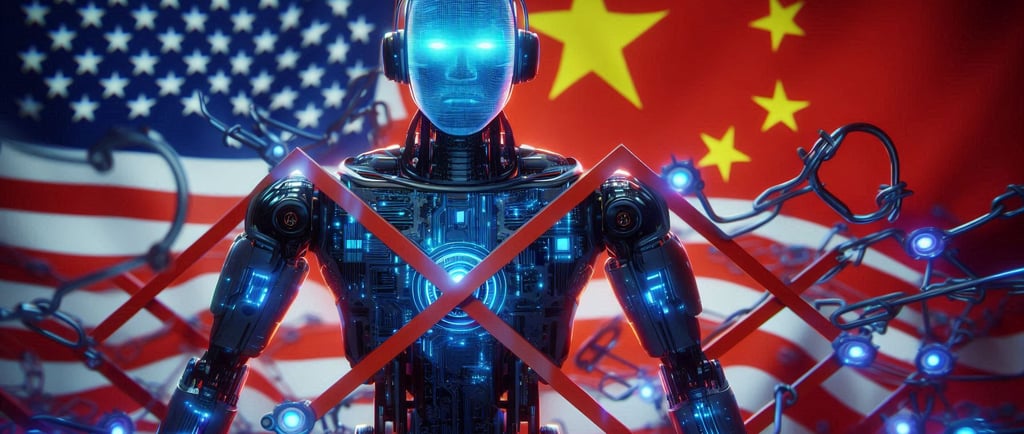OpenAI Urges U.S. to Prioritize AI Over Copyright — Or Risk Losing to China
OpenAI is urging the U.S. government to expand fair use laws, arguing that restricted access to copyrighted data will allow China to win the AI race. The company frames data scraping as a national security issue, despite facing its own accusations of unauthorized data use. Critics warn this approach threatens copyright protections and creator rights in favor of unchecked AI development.
POLICY
The AI Maker
6/19/20252 min read


In a bold and controversial move, OpenAI has sounded the alarm: if U.S. companies are denied access to copyrighted materials for training large language models, the country risks falling behind in the global AI race. The message, delivered via a policy proposal to the White House Office of Science and Technology Policy, takes a familiar turn — invoking national security, economic dominance, and the looming threat of China.
OpenAI, led by Sam Altman, argues that American AI competitiveness hinges on the ability to scrape and use copyrighted content under the doctrine of fair use — a legal principle historically applied to quotations, commentary, and criticism. But the company wants that definition expanded to legitimize large-scale ingestion of copyrighted text for model training.
According to Ars Technica, OpenAI frames the debate not as one of ethics or legality, but as a geopolitical imperative. “If the PRC's developers have unfettered access to data and American companies are left without fair use access, the race for AI is effectively over,” the company warns, using the formal “People’s Republic of China” terminology throughout the proposal for added emphasis.
OpenAI's submission comes at a time when legal challenges from media giants like The New York Times have cast a long shadow over how AI companies source their training data. Critics have blasted the practice of training AI on copyrighted works without permission — especially when AI outputs sometimes mirror original content too closely. From a publisher’s perspective, this isn’t innovation — it’s plagiarism wrapped in code.
Yet OpenAI is doubling down, saying that regulating training data too tightly could hamstring American innovation and even compromise national security. Citing rapid advancements from Chinese models like DeepSeek, OpenAI suggests that America's AI lead is fragile, and data access is key to staying ahead.
The irony here is rich: OpenAI itself has accused others — including DeepSeek — of using its models or data without permission. But this inconvenient fact is conspicuously absent from its official plea for leniency on data scraping. The contradiction hasn’t gone unnoticed.
At its core, this debate touches on the unresolved tension between copyright protections and the training needs of modern AI systems. While OpenAI casts this as a high-stakes global battle, creators and rights holders see it as a violation of intellectual property that could upend industries already disrupted by AI.
Will former President Donald Trump, back in the political spotlight, respond favorably to OpenAI’s lobbying? That remains to be seen. If he does, it could set the stage for a sweeping redefinition of fair use in the AI era — one that might favor tech companies over content creators.
As AI continues to reshape global power dynamics, the U.S. must decide: is unfettered data access a competitive necessity, or is it a step too far in sacrificing creators’ rights for the sake of national advantage?
Your Data, Your Insights
Unlock the power of your data effortlessly. Update it continuously. Automatically.
Answers
Sign up NOW
info at aimaker.com
© 2024. All rights reserved. Terms and Conditions | Privacy Policy
